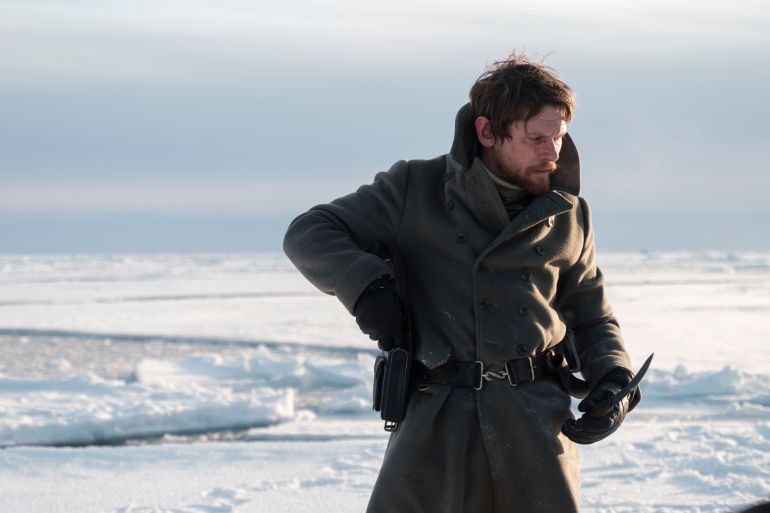‘The North Water.’‘
Once this paralysing crisis has passed, Emile Sherman questions how quickly cinemas will recover and he predicts consolidation among streaming services.
See-Saw Films’ joint MD also suggested Screen Australia or state agencies could underwrite the risk of insuring productions for COVID-19 as all insurers have excluded that from their cover.
Speaking yesterday to Screen Producers Australia CEO Matt Deaner in a session streamed by SPA, Sherman said his company’s finances are in reasonable shape and can weather the downturn for some time, despite the production shutdowns and delays. Two staffers in See-Saw’s London office have contracted the virus.
Jane Campion was forced to call a halt to Netflix-commissioned The Power of the Dog, which stars Benedict Cumberbatch, Jesse Plemons, Kodi Smit-McPhee and Thomasin McKenzie and was shooting on New Zealand’s South Island.
Filming of writer-director Andrew Haigh’s The North Water, a BBC miniseries about a disgraced ex-army surgeon who signs up as ship’s doctor on a whaling expedition to the Arctic, starring Jack O’Connell and Colin Farrell, was suspended with just one week to go.
On hold is Slow Horses, a big budget series for Apple TV, which Sherman described as a “motor for our company.” Adapted from Mick Herron’s spy novels, the series will star Gary Oldman as the leader of a team of British intelligence agents who serve in a dumping ground department of MI5.
Emile Sherman.
Of the broader impact of the pandemic Sherman said: “The production industry has been hit incredibly hard. Crews go from job to job and the government doesn’t take that into account in the same way as regular employees so they end up on unemployment benefits, which is painful for so many people and businesses.”
That prompted Deaner to say he fears that, given the cyclical nature of employment in the screen industry, people who are out of work now will not be eligible for the federal government’s $1,500 a fortnight JobKeeper subsidy
When cinemas re-open the See-Saw executive believes young people will quickly return but he questioned whether others, particularly older people, may have got used to watching content in their homes.
“The theatrical window will be put under pressure by studios releasing films non-theatrically. There is a real question about whether the theatrical business will survive,” he says.
Lamenting the fact that insurance companies are excluding COVID-19 cover for cast and crew, he said it would now be difficult to mount productions unless deep-pocketed financiers, broadcasters or streaming platforms were prepared to take that risk.
He suggested Screen Australia or state agencies could underwrite that risk as a stop-gap for six months.
Seeing one positive in the crisis, he observes studios, broadcasters and streaming platforms still need content and the value of some shows that are completed or are in post and nearing completion will rise.
Sherman agreed with Deaner’s proposition that the disparity between the 20 per cent Producer Offset for Australian TV productions and the 30 per cent Location Offset for international productions makes no sense.



